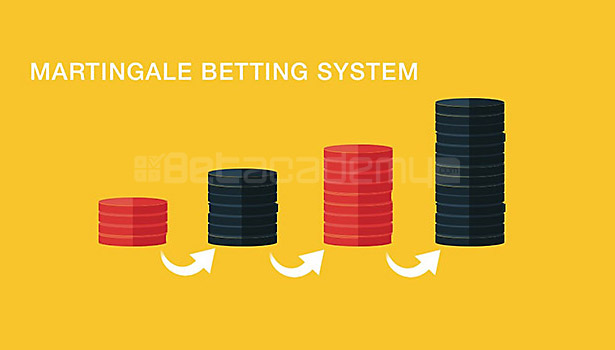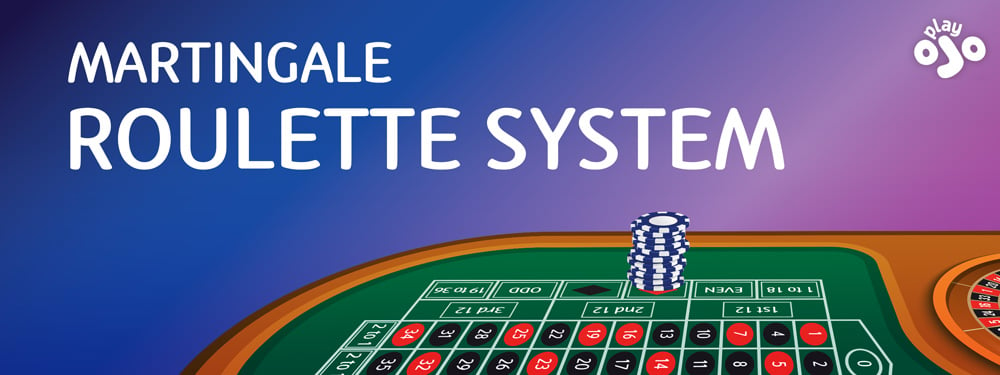The Martingale Strategy is a popular betting system that is used primarily in games of chance such as roulette, craps, and baccarat. The strategy is based on the idea of doubling your bet after every loss, in the hopes of eventually winning back your losses and making a profit.
This strategy works by increasing your bet size after every loss, with the goal of recouping your losses and making a profit on your next win. For example, if you start with a $10 bet and lose, you would then double your bet to $20 on the next round. If you lose again, you would double your bet again to $40, and so on.
The theory behind the strategy is that eventually, you will win and make back all of your losses, plus a profit equal to your original bet size. However, there are a number of drawbacks to the strategy. First, it requires a large bankroll to sustain the doubling of bets after each loss. Second, even with a large bankroll, a long losing streak can wipe out your bankroll quickly. Finally, many casinos have table limits that can prevent you from making large enough bets to continue the strategy after several losses.
Despite its drawbacks, the Martingale Strategy remains a popular betting system, particularly among beginners and those who enjoy playing games of chance. However, it is important to remember that no betting strategy can guarantee a win and that responsible gambling and bankroll management is key to enjoying gambling activities while minimizing risk.

How does the Martingale Strategy work?
There are numerous investment theories and strategies that aim to generate significant profits, with the Martingale strategy being a notable one due to its distinctive and precise formula. The Martingale strategy is rooted in a mathematical formula that promises sizeable returns, provided the player has enough time and money. This betting system is typically utilized by individuals who gamble for money.
The essence of the Martingale strategy is to increase the probability of earning money over time by doubling the bet amount after each loss. In theory, eventually, the player should recoup their original wager plus profit. However, in reality, this formula demands that the player has unlimited wealth.
The Martingale system is designed for even bets, which have a payout of 1:1. The premise of this method is simple – place a bet on one of the even-odds options. After each losing round, double the bet and continue until a win occurs. The first win should cover all prior losses, and additionally, the player should obtain a profit equal to their initial wager.
For example, if the initial bet was €1, the progression would be: 1 – 2 – 4 – 8 – 16 – 32 – 64 – 128 – 256 – 512 – 1024 – 2048 – 4096 – 8192.
However, this formula is theoretical and does not account for other variables that can impact the game’s outcome, such as external factors and luck. Therefore, it is essential to exercise caution and acknowledge the potential risks of utilizing this strategy.
Pros of the Martingale Strategy
The Martingale Strategy has some potential benefits, including:
Simple to Use: The strategy is easy to understand and implement, even for beginners.
Potential for High Profits: With the right conditions and a long enough winning streak, the strategy can lead to significant profits.
Universal Applicability: The Martingale Strategy can be applied to many games of chance, including roulette, craps, and baccarat.
Risk Management: By doubling the bet after each loss, the strategy aims to recoup losses quickly, minimizing the risk of a long losing streak.
Cons of the Martingale Strategy
The Strategy has some significant drawbacks, including:
Risk of Large Losses: The strategy can lead to significant losses if there is a long losing streak, as the bet size doubles after each loss.
Large Bankroll Required: The strategy requires a large bankroll to cover the increasing bet sizes, and not everyone has the financial resources to sustain this.
Hitting Table Limits: Most casinos have table limits that can prevent the strategy from being effective, as the player may eventually hit the limit and not be able to double the bet anymore.
No Guarantee of Winning: Like any betting strategy, there is no guarantee of winning, and the player may end up losing money even after a series of wins.
Psychological Pressure: The strategy can create psychological pressure on the player, especially during a long losing streak, which can affect decision-making and lead to emotional decisions.
The Martingale Strategy in Online Casino Games
The Martingale Strategy can be used in various online casino games, including roulette, blackjack, baccarat, and poker. Here are the steps to use this strategy in each game:
Roulette: In roulette, start by placing a bet on an even-money bet (e.g., red or black, odd or even). If you lose, double your bet on the same even-money bet for the next spin. Keep doubling your bet after each loss until you win, at which point you can return to your original bet size. If you win, repeat the process with the same bet.

Blackjack: In blackjack, use the Martingale Strategy by betting on the same outcome each time (e.g., betting on the player or banker’s hand in baccarat). If you lose, double your bet for the next round. Keep doubling your bet after each loss until you win, at which point you can return to your original bet size.
Baccarat: In baccarat, use the Strategy of betting on the same outcome each time (e.g., betting on the player or banker’s hand in baccarat). If you lose, double your bet for the next round. Keep doubling your bet after each loss until you win, at which point you can return to your original bet size.
Poker: The Martingale Strategy can be used in poker by doubling your bet after each loss. However, this strategy is not recommended in poker, as it is a game of skill and strategy, and using the Martingale Strategy may not be effective in the long run.
How Effective is the Martingale strategy in online casino games?
The Martingale strategy is one of the most popular betting systems used in online casino games, particularly in games such as Roulette and Blackjack. The basic principle of the Martingale strategy is to double your bet after each loss, with the aim of recovering all your losses and making a profit on your next win.
While the Martingale strategy can be effective in theory, it does come with several limitations and risks. One of the main drawbacks of the Martingale strategy is that it requires a large bankroll to be successful. As you continue to double your bets after each loss, you could quickly reach the table limit or run out of funds before you hit a winning streak.
Another limitation of the Martingale strategy is that it does not guarantee a win. While it can be effective in the short term, there is always a risk of a long losing streak, which could result in substantial losses.
Furthermore, the Martingale strategy is not effective in games with a low payout percentage, such as slot machines, as it would take a large number of wins to recover your losses.
Martingale Strategy Variations
The Martingale betting system is a popular progressive betting strategy that involves doubling the size of bets after each loss, with the goal of recovering previous losses and making a profit. While the basic Martingale system is simple and easy to understand, there are several variations that can be used to modify the strategy and adapt it to different types of casino games. In this answer, we will discuss some of the most common variations of the Martingale strategy.
Grand Martingale
The Grand Martingale is a variation of the basic Martingale system that involves increasing the size of bets even more aggressively after a loss. Instead of doubling the size of the previous bet, the player adds an additional unit to the bet. For example, if the initial bet was $10 and the player lost, the next bet would be $30 instead of $20.
Reverse Martingale
The Reverse Martingale, also known as the Paroli system, is a variation of the Martingale system that involves increasing the size of bets after a win, rather than a loss. The idea behind this strategy is to take advantage of winning streaks and minimize losses during losing streaks. The player starts with a small bet and doubles the bet after each win.
Anti-Martingale
The Anti-Martingale is a variation of the Martingale system that involves increasing the size of bets after a win, rather than a loss, like the Reverse Martingale. However, unlike the Reverse Martingale, the Anti-Martingale system involves decreasing the size of bets after a loss. The idea behind this strategy is to maximize profits during winning streaks and minimize losses during losing streaks.
Half-Martingale
The Half-Martingale is a variation of the Martingale system that involves increasing the size of bets after a loss, but only by half the amount of the previous bet. If the initial bet was $10 and the player lost, the next bet would be $15 instead of $20. This strategy is less aggressive than the basic Martingale system. It’s often used by players who want to take a more conservative approach to their betting.
Great Martingale
The Great Martingale is a more aggressive variation of the Martingale system that involves doubling the size of bets after a loss, like the basic Martingale system, but also adding an additional unit to the bet. For example, if the initial bet was $10 and the player lost, the next bet would be $30 instead of $20, as with the Grand Martingale. This strategy is often used by players who want to recover losses more quickly and potentially make larger profits.
FAQ
Conclusion
The Martingale strategy is a betting system that involves doubling your bet after each loss. It is often used in gambling, but can also be applied to other areas of life. While it may seem like a foolproof way to make money, it has significant drawbacks. The main problem is that it requires an unlimited bankroll and assumes that a win is inevitable, which is not always the case. In practice, the Martingale strategy can lead to substantial losses, and it is not recommended for long-term investment or gambling purposes.
